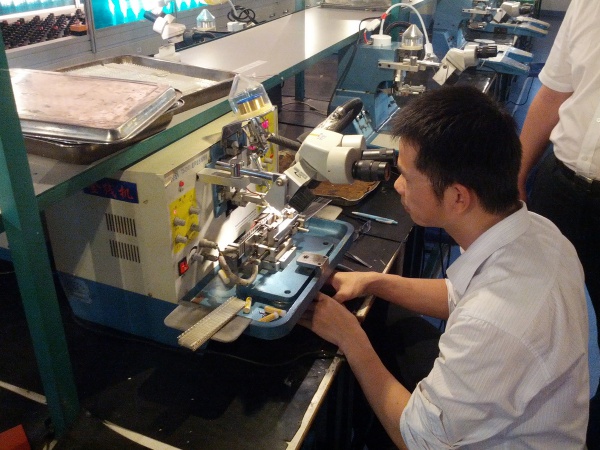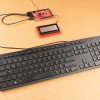Do you lie awake at night, pondering the miracle of electronic components and wondering how they got here? Are you tired of kids asking you where LEDs come from? Have you ever been secretly confused about how PCBs and LiPo batteries are made? Well you're in luck, because SparkFun CEO Nate is here to give us "the talk," and while the truth about where components come from may be short on romance, it has more than enough technical finesse to blow your minds.
LEDs in the wire-bonding machine
While in China earlier this year, Nate got to tour three different facilities run by SparkFun's suppliers, so if you've ever been curious about the work that goes in to producing LEDs, how chip-on-board (COB) PCB manufacturing is done (with a stop at the multimeter floor to discuss alternative color options), or how lithium polymer batteries got here, follow the links to check out his behind-the-scenes tours!
And remember: Knowledge is power.









In the last picture of "How LEDs are made" it looks as if Alicia has a soldering iron arm.
I think we all know what color the new multi-meters will be.
The chip-on-board tutorial was a real eye-opener for me.
The last I saw - back in the 70's - this was done by hand under a microscope. And not just for COBs; IC's were all done this way. I'm sure after seeing this that IC's must use similar technology to mount the die to the lead frame. It would be very interesting to see how newer IC's are assembled. I'm thinking of the leadless bump packages and QFNs and so on. Time for a video search...